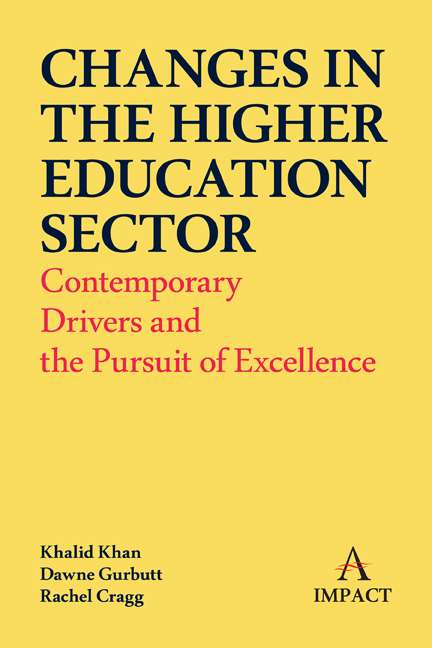Chapter 2 - Importance of Teaching Excellence: What Matters?
Published online by Cambridge University Press: 13 May 2022
Summary
Introduction
‘Teaching excellence’ is not a simple concept and, as a concept, lacks precision. (Elton, 1998, 3).
While excellence is often perceived as a concept linked with individual virtue or quality, it is also referred to as an organisational characteristic by which universities recognise a vertical stratification which promotes exceptionality (Tavaras, 2014).
Excellence in Higher Education (HE) has more often become the expectation of all. ‘Teaching Excellence’ in particular is the definition of how we teach, how students learn and how we justify value to students and stakeholders. An internet search of HE providers suggests that many promote themselves as offering excellent teaching. The UK regulator for HE, the Office for Students (OfS), and the UK professional standards framework both articulate minimum expectations for teaching excellence. Inherent in these definitions is that excellence is the expectation, not a definition of exceptionality. For the purpose of this chapter the concept of excellence is therefore that of an expected customer service standard: one which underpins our professionalism, our values and our sense of success.
This chapter explores those aspects that define teaching excellence in the UK HE sector. It recognises the importance of teaching excellence to learners, professionals, the sector and HE policy agendas. In conclusion it recognises how a focus on teaching excellence has changed behaviours within the sector.
Student Numbers Entering HE
The number of students going into HE in the United Kingdom has been growing steadily since the mid-1990s. This was a stated objective of government policy back in 1999 when the then Prime Minister Tony Blair made a pledge that 50 per cent of all young people should be in HE by the year 2010. Although this objective was not reached fully by the 2010 deadline, it did reach around 49 per cent by the year 2017 (Adams, 2017).
Figure 1 summarises trends over a 25-year period since the Universities and Colleges Admissions Service (UCAS) was created following the reform of the sector in the early 1990s. It is clearly observed that student application numbers have been steadily rising since the mid-1990s except for the years 2006 and 2012 when there were dips corresponding to the introduction of variable fees and a rise in fees to £9,000 per year respectively.
- Type
- Chapter
- Information
- Changes in the Higher Education SectorContemporary Drivers and the Pursuit of Excellence, pp. 13 - 26Publisher: Anthem PressPrint publication year: 2022



